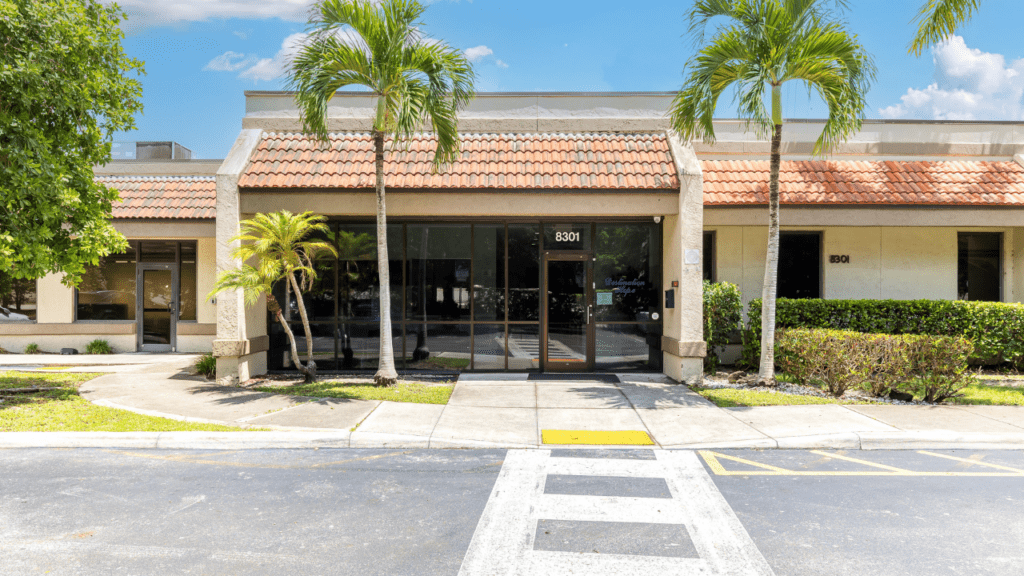Mental health challenges affect millions of Americans, with over 30% of adults in the United States reporting symptoms of anxiety and depression in recent surveys. Florida, home to over 22 million residents, faces particularly significant mental health needs. Nearly 2.9 million adults in the state of Florida experience mental health issues yearly, approximately six times the population of Miami, highlighting the critical importance of accessible, quality mental health rehab in Florida.
Understanding Florida’s Mental Health Landscape
Florida’s mental health statistics paint a sobering picture that underscores the need for comprehensive treatment options. Despite these challenges, Florida has seen remarkable progress in treatment availability and innovation. The state’s year-round climate, diverse treatment options, and growing network of specialized facilities make it an increasingly attractive destination for mental health rehabilitation. Many individuals find that stepping away from their daily environment to focus on healing in Florida’s therapeutic setting accelerates their recovery journey in ways that wouldn’t be possible in their home communities.
The concentration of treatment centers in Florida has created a competitive environment that drives continuous improvement in care quality. This competition has led to the development of innovative treatment approaches, specialized programs for specific populations, and comprehensive care models that address the complex nature of mental health disorders.
What Makes Mental Health Rehab Different from Traditional Therapy
Mental health rehab in Florida offers intensive, structured treatment that goes far beyond weekly therapy sessions. Unlike outpatient counseling, rehab programs provide immersive environments where individuals can focus entirely on their mental health without the distractions and triggers of daily life. This concentrated approach often produces breakthrough progress that might take months or years to achieve through traditional outpatient care.
These programs typically combine multiple therapeutic approaches, creating a comprehensive treatment experience that addresses not just symptoms but underlying causes. Individual therapy sessions provide personalized attention and deep exploration of personal history and trauma. Group therapy offers peer support and opportunities to practice social skills in a safe environment. Medication management ensures that psychiatric medications are optimized for each individual’s needs, while holistic treatments like art therapy, yoga, and recreational activities support overall wellness.
Florida’s rehab centers often incorporate the state’s natural advantages into treatment plans. The abundant sunshine provides natural vitamin D production, which plays a crucial role in mood regulation. Year-round outdoor activities support physical wellness and mental health, while the relaxed pace of life offers respite from high-stress environments that often contribute to mental health challenges.
The Scope of Mental Health Conditions Treated in Florida Rehab
Mental health rehab centers in Florida treat a comprehensive spectrum of conditions, recognizing that mental illness affects people differently and often involves complex combinations of symptoms and circumstances. Depression and mood disorders represent a significant portion of cases, particularly when symptoms become severe enough to impair basic functioning or when individuals haven’t responded well to outpatient treatment.
Anxiety disorders, ranging from generalized anxiety to panic disorders and PTSD, respond particularly well to the intensive intervention available in rehab settings. The controlled environment allows for carefully structured exposure therapy and intensive skill-building that might not be possible in weekly outpatient sessions. For individuals whose anxiety has become so severe that it prevents them from leaving their homes or maintaining employment, the immersive nature of rehab can provide the breakthrough needed to reclaim their lives.
Bipolar disorder presents unique challenges that often benefit from the 24/7 monitoring available in rehab settings. The extreme mood swings characteristic of this condition require careful medication management and the development of sophisticated mood regulation skills. The structured environment of rehab provides stability during treatment while helping individuals learn to recognize early warning signs and implement coping strategies.
Trauma and PTSD treatment has become increasingly sophisticated in Florida’s rehab centers, particularly given the state’s large veteran population. Florida is home to more than 1.4 million veterans, representing a large portion of the state’s population. Many of these individuals struggle with combat-related PTSD, while others deal with civilian trauma from accidents, abuse, or other traumatic experiences. Specialized trauma programs in Florida address both the psychological and physiological aspects of trauma, using evidence-based approaches to help individuals process traumatic experiences safely.
Perhaps most significantly, Florida’s leading facilities have become experts in dual diagnosis treatment, addressing the reality that nearly 50% of individuals with a substance use disorder also battle a co-occurring mental health disorder. These integrated programs recognize that mental health and substance use disorders often reinforce each other, requiring simultaneous treatment for lasting recovery.

Levels of Care in Florida Mental Health Rehab
Mental health rehab in Florida operates on a carefully designed continuum of care that allows individuals to receive treatment intensity that matches their specific needs while providing pathways for stepping down to less intensive care as they progress. This graduated approach ensures that people receive appropriate support at each stage of their recovery journey.
Inpatient or residential treatment provides the most intensive level of care, offering 24/7 supervision and support. This level is ideal for individuals experiencing severe symptoms, those with suicidal ideation, or people who require medication stabilization in a controlled environment. The residential setting removes all external stressors and triggers, allowing individuals to focus completely on their recovery while receiving immediate support when needed.
Partial hospitalization programs offer a middle ground that provides structured daily programming while allowing patients to maintain some independence. These programs typically run six to eight hours per day, five days per week, providing intensive treatment while allowing individuals to return home each evening. This option works well for people who need intensive support but have stable housing and strong family support systems.
Intensive outpatient programs provide flexibility for those who need structured mental health support while maintaining work, school, or family responsibilities. These programs usually involve six to nine hours of treatment per week, allowing individuals to begin rebuilding their lives while receiving ongoing therapeutic support. This level often serves as a step-down from more intensive care or as an entry point for individuals whose symptoms don’t require residential treatment.
The Unique Advantages of Choosing Florida for Mental Health Recovery
Florida offers distinctive advantages for mental health rehabilitation that extend well beyond its famous sunshine, though the year-round access to natural light does provide significant therapeutic benefits. The state’s diverse geography creates opportunities for innovative treatment approaches that simply aren’t available in other parts of the country. From beach therapy sessions that utilize the calming effects of ocean sounds and environments to adventure therapy programs in the Everglades, Florida’s natural resources become integral parts of the healing process.
The concept of getting away from familiar environments for treatment has proven particularly powerful for mental health recovery. Many individuals find that remaining in the same environment where their mental health challenges developed makes it difficult to gain perspective and implement changes. Florida’s welcoming climate and different pace of life provide natural distance from triggers and stressors, creating space for new perspectives and healthier patterns to emerge.
Florida has also developed one of the most robust recovery communities in the nation. This means that individuals completing mental health rehab have access to extensive ongoing support networks, alumni programs, and continuing care resources. The concentration of people in recovery creates a supportive culture that understands the challenges of mental health recovery and provides ongoing encouragement and accountability.

Choosing the Right Mental Health Rehab in Florida
Selecting the appropriate facility requires careful consideration of multiple factors that will impact both the treatment experience and long-term outcomes. Accreditation and licensing provide essential quality assurance, ensuring that facilities meet rigorous standards for care delivery and safety. The Joint Commission accreditation represents the gold standard in healthcare quality, indicating that a facility has undergone comprehensive evaluation of its policies, procedures, and outcomes.
The expertise and specialization of the treatment team significantly impact the quality of care received. Look for facilities staffed by board-certified psychiatrists, licensed clinical social workers, addiction counselors, and other mental health professionals who have specific experience treating your condition. Some facilities excel in trauma treatment, while others have developed particular expertise in mood disorders, eating disorders, or dual diagnosis cases.
Treatment philosophy and approach should align with your personal values and preferences. Some programs emphasize traditional medical model approaches focusing on medication and evidence-based psychotherapy, while others incorporate more holistic or alternative treatments. The most effective programs typically combine proven medical treatments with complementary approaches that address the whole person.
Insurance coverage and financial considerations play important practical roles in treatment selection. Most major insurance plans provide substantial coverage for mental health rehabilitation under mental health parity laws, but coverage details vary significantly between plans. Many Florida rehab centers employ insurance specialists who help families understand their benefits and navigate the approval process.
What to Expect During Mental Health Rehab in Florida
The journey begins with comprehensive assessment designed to understand each individual’s unique needs, circumstances, and goals. This evaluation process typically includes detailed mental health and medical history, current symptom assessment, evaluation of family dynamics and support systems, and identification of specific treatment objectives. This thorough assessment forms the foundation for developing personalized treatment plans that address each person’s specific situation.
Daily life in mental health rehab follows structured but flexible schedules that balance intensive therapy with rest, recreation, and skill-building activities. Most programs begin days with goal-setting or mindfulness activities, followed by individual therapy sessions, group therapy, educational workshops, and recreational activities. The structured nature provides stability and routine, which can be particularly beneficial for individuals whose mental health challenges have disrupted their ability to maintain regular daily patterns.
Family involvement often plays a crucial role in treatment success, and Florida’s appeal as a destination makes it easier for family members to participate in treatment through family therapy sessions, educational programs, and visits. Many families find that participating in their loved one’s treatment in Florida’s relaxed environment facilitates more open communication and deeper healing than might be possible in their home environment.
Florida mental health rehab programs place significant emphasis on preparing individuals for successful transition back to their daily lives. This preparation includes developing comprehensive relapse prevention plans, connecting with ongoing care providers, building support networks, and practicing newly learned skills in gradually increasing independence. The goal is ensuring that progress made during intensive treatment continues long after leaving the facility.
Financial Considerations and Insurance
While Florida faces challenges in public mental health funding, private insurance coverage for mental health rehabilitation has improved significantly under mental health parity legislation. The Mental Health Parity and Addiction Equity Act requires insurance companies to provide equal coverage for mental health and physical health conditions, making intensive treatment more accessible than ever before.
Understanding insurance benefits can be complex, but most Florida rehab centers provide assistance navigating coverage options and maximizing benefits. Many facilities offer payment plans, sliding scale fees, or scholarship programs to ensure that financial constraints don’t prevent individuals from accessing needed treatment. When considering the cost of treatment, it’s helpful to weigh it against the ongoing costs of untreated mental illness, including lost productivity, relationship problems, and additional healthcare needs.
At Destination Hope in Fort Lauderdale, we understand the unique challenges facing individuals seeking mental health rehab in Florida. Our Joint Commission-accredited facility has been a leader in integrated mental health and addiction treatment since 2006, pioneering many of the dual diagnosis approaches now considered standard care. We offer a comprehensive continuum of care, from residential treatment to outpatient support, all designed to address the root causes of mental illness while building practical skills for lasting recovery.
Our experienced team combines evidence-based treatments with innovative approaches, taking full advantage of Florida’s therapeutic environment to support healing and growth. We believe that with the right support, comprehensive treatment, and commitment to recovery, anyone can overcome mental health challenges and build a fulfilling life. Our unique family program provides an intimate and supportive environment for one-on-one interaction, addressing underlying family, relationship, and environmental factors that may impact recovery.
Don’t let mental health struggles define your future. Contact Destination Hope today at (954) 302-4269 to learn how our specialized mental health rehab programs can help you or your loved one chart a course to recovery right here in Florida. Recovery is possible, and it begins with taking that first courageous step toward getting help.

